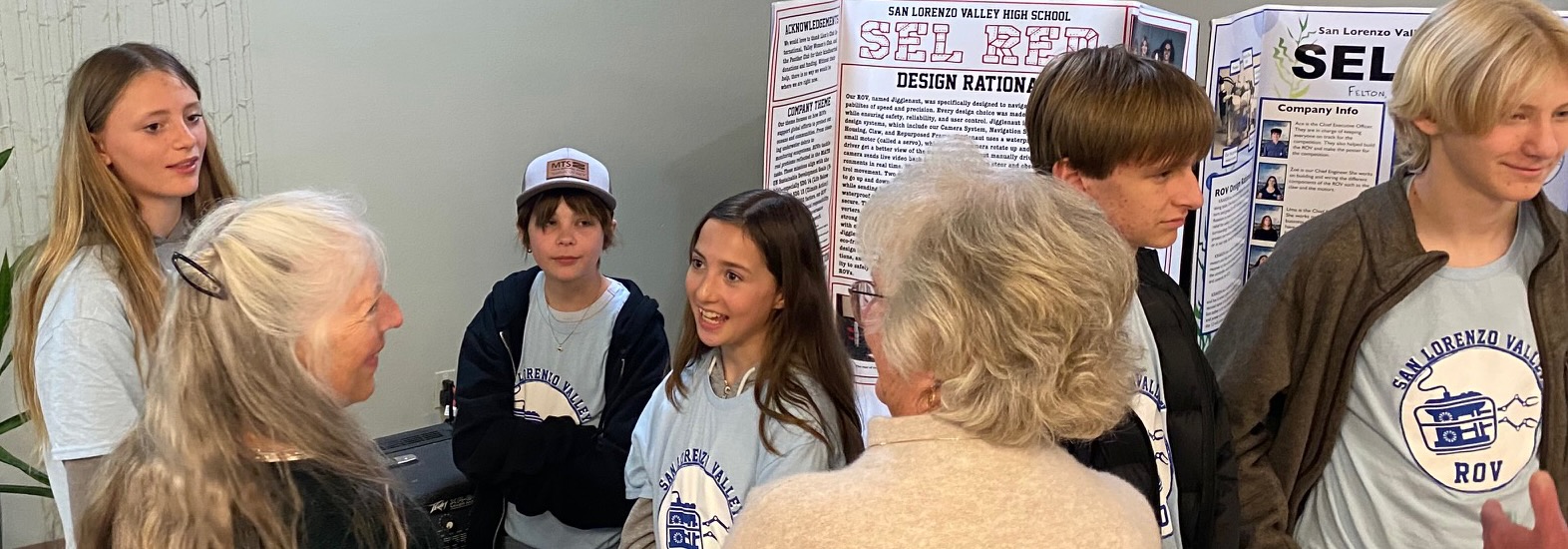Gratitude in Action: Students Present to Valley Women's Club

Last week, our ROV students had the opportunity to present at the Valley Women’s Club annual meeting - not to ask for something, but to report back and say thank you. It was one of those moments that reminded me why authentic community partnerships matter so much in education.
More Than a Thank You
The Valley Women’s Club had awarded our ROV program a $1,000 environmental grant earlier in the year, specifically for environmental education. The ROV mission statement is “the ocean we need for the future we want.” Rather than simply sending a thank-you note, our students wanted to show the impact of that investment.
They shared their competition results, explained how they’d grown as both engineers and environmental stewards, and demonstrated the connection between their technical work and real-world ocean health monitoring. But more importantly, they practiced something we don’t teach enough in schools: accountability to the people who believe in your work.
Learning Beyond Robotics
For many of our students, this was their first experience presenting to a formal community organization. They learned about civic engagement and how local organizations like Valley Women’s Club support community initiatives. It was a powerful reminder of how our community embraces and supports youth of all backgrounds.
Building Sustainable Partnerships
What made this grant special wasn’t just the financial support - it was the relationship-building aspect. The Valley Women’s Club didn’t just write a check; they invited our students into their community, listened to their work, and created ongoing connections between generations.
This kind of partnership teaches students that grants aren’t entitlements - they’re investments that create mutual responsibility. The students learned they had an obligation to use the funds wisely and report back on their impact. The club members saw firsthand how their support translates into student growth and community benefit.
The Real Impact
Standing before that room of accomplished community leaders, our students demonstrated confidence, gratitude, and pride in their work. They answered questions thoughtfully, explained technical concepts clearly, and represented our program with maturity that went far beyond their years.
The $1,000 grant supported our environmental education mission, but the presentation experience was equally valuable. Students learned that being part of a community means both receiving support and giving back, both asking for help and showing accountability.
Sometimes the most important lessons happen not in the classroom, but in moments when students realize they’re part of something bigger than themselves. 🎓